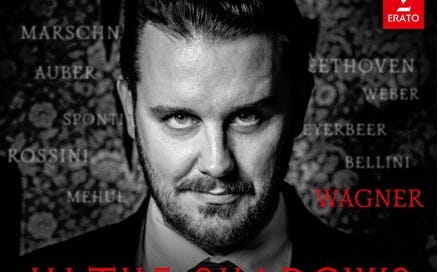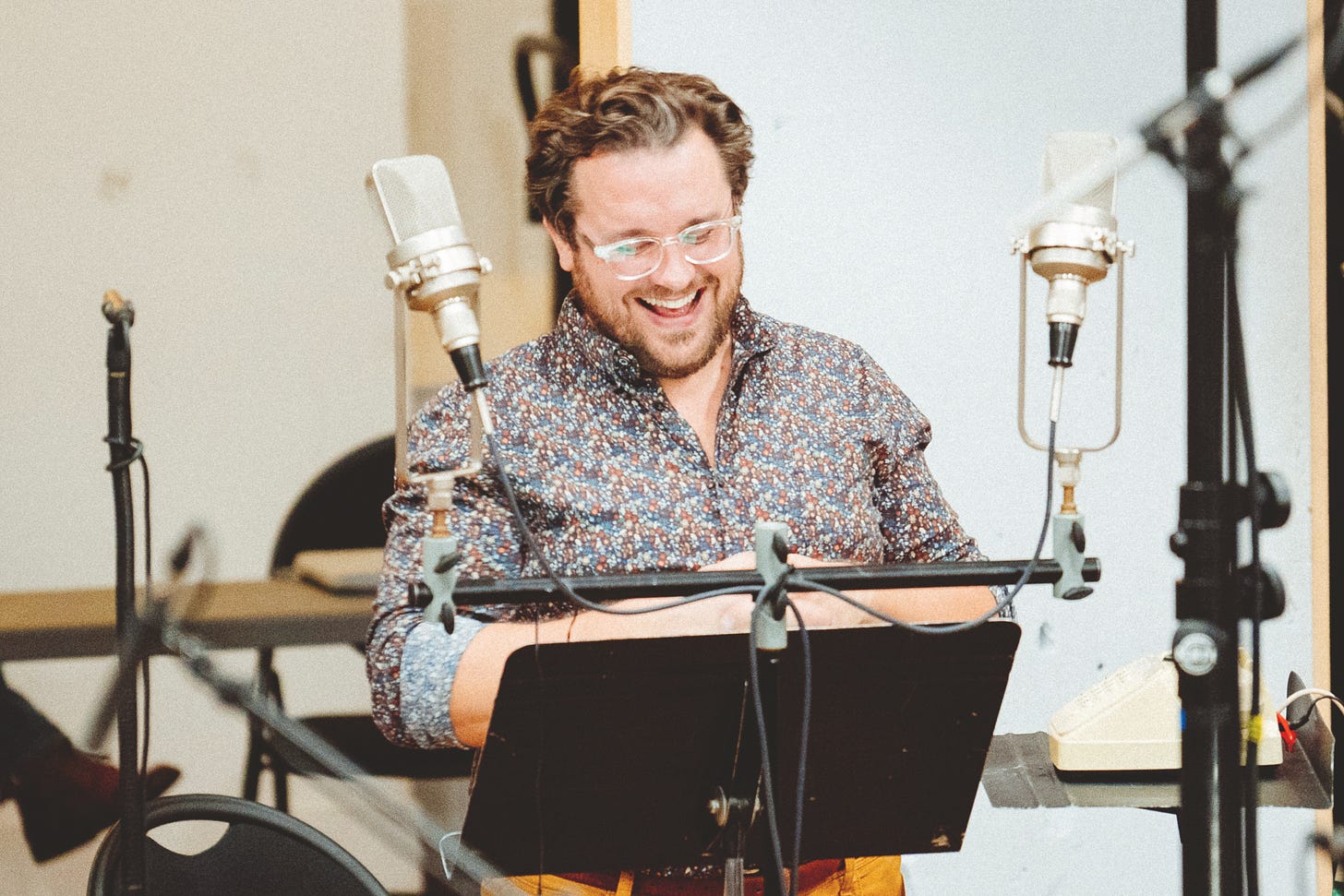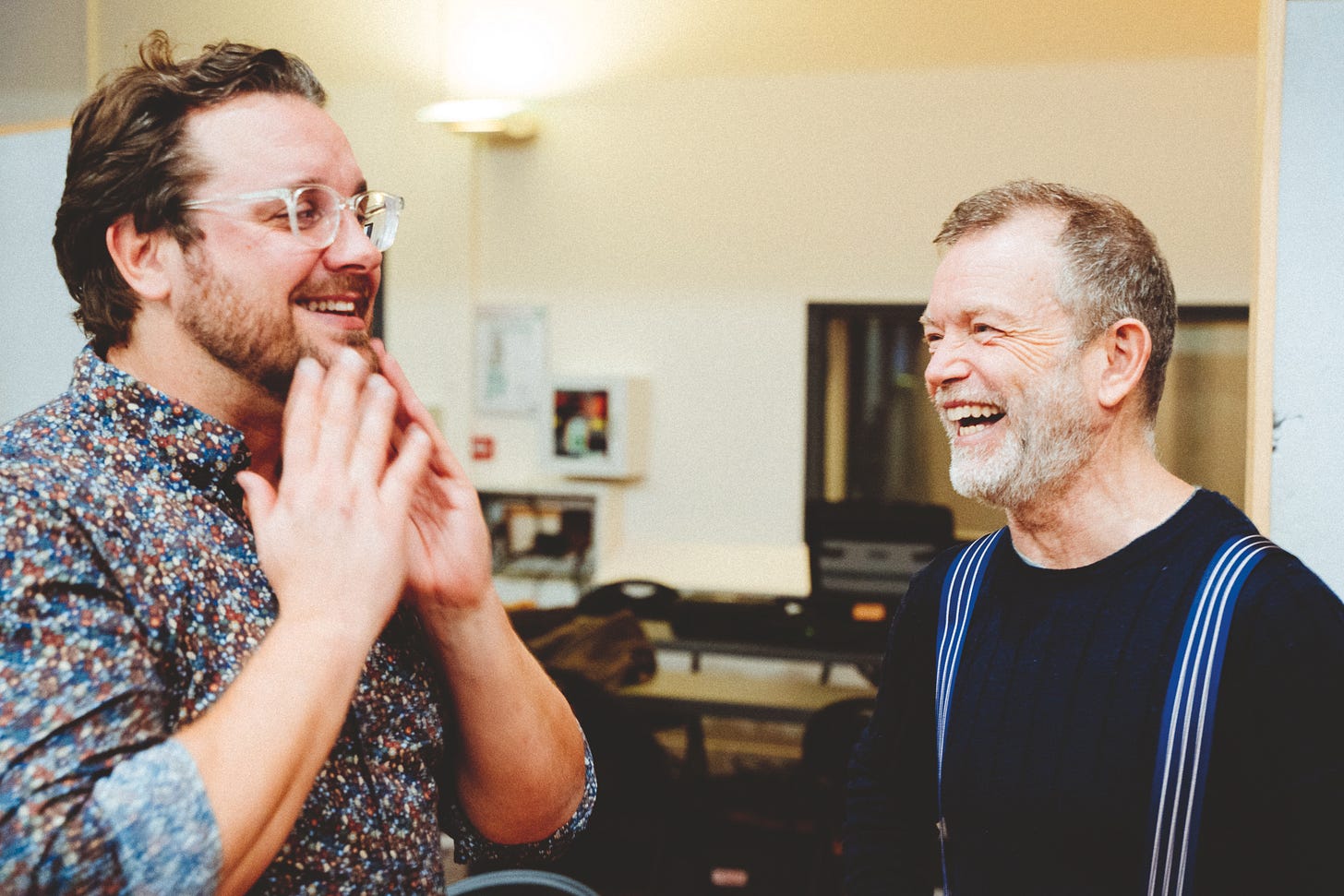MÉHUL: JOSEPH Vainement Pharaön…Champs paternel BEETHOVEN: FIDELIO Gott! Welch Dunkel hier…In des Lebens Frühlingstagen ROSSINI: Elisabetta, regina d’Inghilterra Della cieca fortuna…Sposa amata MEYERBEER: Il crociato in Egitto, Suona funerea WEBER: Der Freischütz Nein, länger trag’ ich nicht die Qualen… Durch die Wälder AUBER: La Muette de Portici Spectacle affreux…Ô Dieu! toi qui m’a destiné SPONTINI: Agnes von Hohenstaufen Der Strom wälzt ruhig BELLINI: Norma Memo all’altar di Venere…Me protegge MARSCHNER: Hans Heiling Gönne mir ein Wort der Liebe WAGNER: Die Feen Wo find’ ich dich WAGNER: Rienzi Allmächt’ger Vater WAGNER: Lohengrin Mein lieber Schwan
Michael Spyres, tenor, with Julien Henric (Flavio, Norma), Jeune Chœur de Paris, Les Talens Lyriques, conducted by Christophe Rousset
Erato (Warner Classics) 5 054197 879821
With each of his solo albums, American ‘baritenor’ Michael Spyres nurtures expectations that his is a voice that can sing anything and everything. His third such disc for Erato/Warner specifically charts his journey from early 19th century Italian, French and German works towards the leading roles in three of Wagner’s early Romantic operas - Die Feen (The Fairies), Rienzi and Lohengrin (see my review of his stage debut in the last of these at Strasbourg’s Opéra du Rhin, March 18).
Although heroic tenor roles in operas such as Beethoven’s Fidelio and Weber’s Der Freischütz have, during the last 50 years, generally been sung by ‘heldentenors’, this term didn’t really exist at the time these operas were composed. The rise of period instruments and/or ‘historically informed’ conductors has seen both of these operas cast with heavier Mozart tenors. In Edinburgh in the early 2000s, for example, Charles Mackerras performed them in concert with Anthony Rolfe Johnson as Florestan (Fidelio) and a young Jonas Kaufmann - just emerging from a period as the world’s most sought after Belmonte and Tamino - as Max (Der Freischütz).
Spyres sings both here with a grainy ‘baritenorial’ sound (closer to Kaufmann than Rolfe Johnson), but his thrilling crescendo-decrescendo on the opening cry of “Gott!” recalls for me the timbres of my first Florestans at Covent Garden, James King and Jon Vickers. Yet neither of those great singers came close to Spyres’s airy lightness, agility and effortless high notes in the aria’s stretta, ‘Und spür ich, nicht linde, sanft säuselnde Luft?’ (Do I not feel a gentle, stirring breeze?), which Beethoven’s music clearly requires. The same applies to Max’s scena from Der Freischütz where, again, Spyres’s pliant, ‘bel canto’ phrasing yields rich dividends, underpinned by the woody period wind instruments and transparent string textures of Christophe Rousset’s Les Talens Lyriques.
Michael Spyres at the Studio sessions Picture by Edouard Brane
This inspired choice of an Erato ‘in-house’ maître and period band arouses all manner of mouth-watering possibilities: a recording of Berlioz’s orchestration and arrangement (with French accompanied recits) of Le Freischütz, perhaps? Or even, moving 40 years forward in the history of French romantic opera, a first recording of the second version of Tannhäuser (sung in French as it was at the Paris premiere in 1861)? Headlined by Spyres and conducted by Rousset, such a recording would be a much-anticipated recording first.
Rousset’s players bring the most obvious musical benefits to the ‘In The Shadows’ section of this disc - though I would question whether Fidelio, Der Freischütz, or Belllini’s Norma really are overshadowed by Wagner in today’s opera house repertoires. Certainly Rousset’s conducting and Les Talens’ playing illuminates corners of these scores, throwing Spyres’s vocal gifts into high relief. It’s astounding, at least by the standards of today, that a tenor contemplating Florestan, Max, even Tristan (he has already sung Act 2, supremely well, in concert) should still be singing florid bel canto repertoire: Leicester in Rossini’s Elisabetta, regina d’Inghilterra, the title role in Donizetti’s Roberto Devereux, Adriano in Meyerbeer’s Il crociato in Egitto, and Pollione - admittedly the least intricate musically - in Norma. Spyres may lack the bright, trumpety tones of famous Pollione interpreters of the past, but he sounds more stylish and more comfortable with an early Italian romantic sensibility than his Verdian/veristic predecessors. The singer of recent times that he most reminds me of is the young Gregory Kunde, with whom he already shares many roles (Cellini, Énée, Rossini’s Otello), but Spyres’s voice sounds freer at the top. Both are ideally suited to French repertoire.
Spyres and Christophe Rousset at the sessions Picture by Edouard Brane
Spyres opens his programme with Joseph’s big scene from Méhul’s eponymous opera, ‘Vainement Pharaön…Champs paternal’, a sometime French tenor classic, and ‘Spectacle affreux…Oh Dieu! toi qui m’a destinée’ from Auber’s La Muette de Portici. The pre-Wagner German items include a rarity, indeed a world premiere recording - Heinrich’s aria from the original version of Spontini’s Agnes von Hohenstaufen, premiered in Berlin (and sung in the language of the audience) in 1829. Konrad’s aria from Marschner’s Hans Heiling - an opera Wagner conducted in his years as a wandering Kapellmeister, which he may have ‘recalled’ in his own compositions - is an obvious, though rarely recorded, stepping stone to the three Wagner items: Arindal’s aria from Die Feen, Rienzi’s famous prayer ‘Allmächt’ge Vater’ and Lohengrin’s ‘Mein lieber Schwan’. Spyres recorded the Grail Narration in French on his ‘Baritenor’ album and now gives us its “sequel” in the original German.
I have never heard the like of Spyres’s performances of the Rienzi and Lohengrin extracts. He brings a bel canto legato to music Wagner composed while conducting works by Bellini, reminding us that in his early years Wagner loved Capuleti and admired Wilhelmine Schröder-Devrient, who created the roles of Adriano in Rienzi, Senta in Der Fliegende Holländer and Venus in Tannhäuser. As Spyres prepares to make his Bayreuth debut as Siegmund, followed by Stolzing in a new Meistersinger there in 2025, he invites us to hear a Wagner entirely different from the interpretations we are accustomed to: Italianate, lyrical, wearing its French influences lightly. With luck, this disc could presage a revolution in Wagner tenor singing. It deserves to win the singer every award going.







We were the grateful recipients of this exceptional CD which is every bit as superb as the review describes. Now to listen again with Hugh Canning’s illuminating comments and background information.
Thank you Manou - I had a feeling you’d enjoy this exceptional disc. I’m so glad the Strasbourg Lohengrin worked out! I WON’T be able to fix the same for the Bayreuth Siegmund or Stolzing, alas! 😈😂